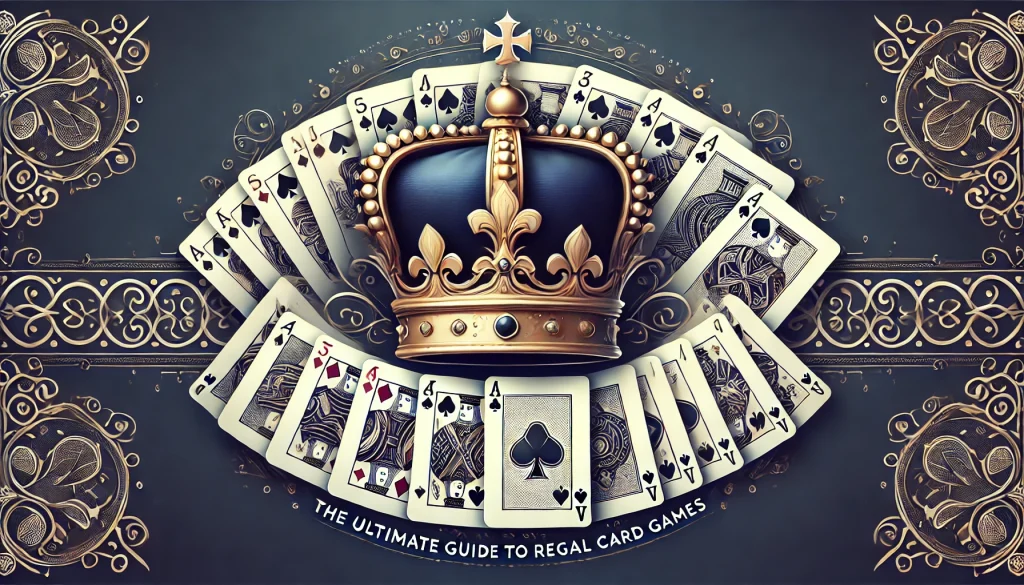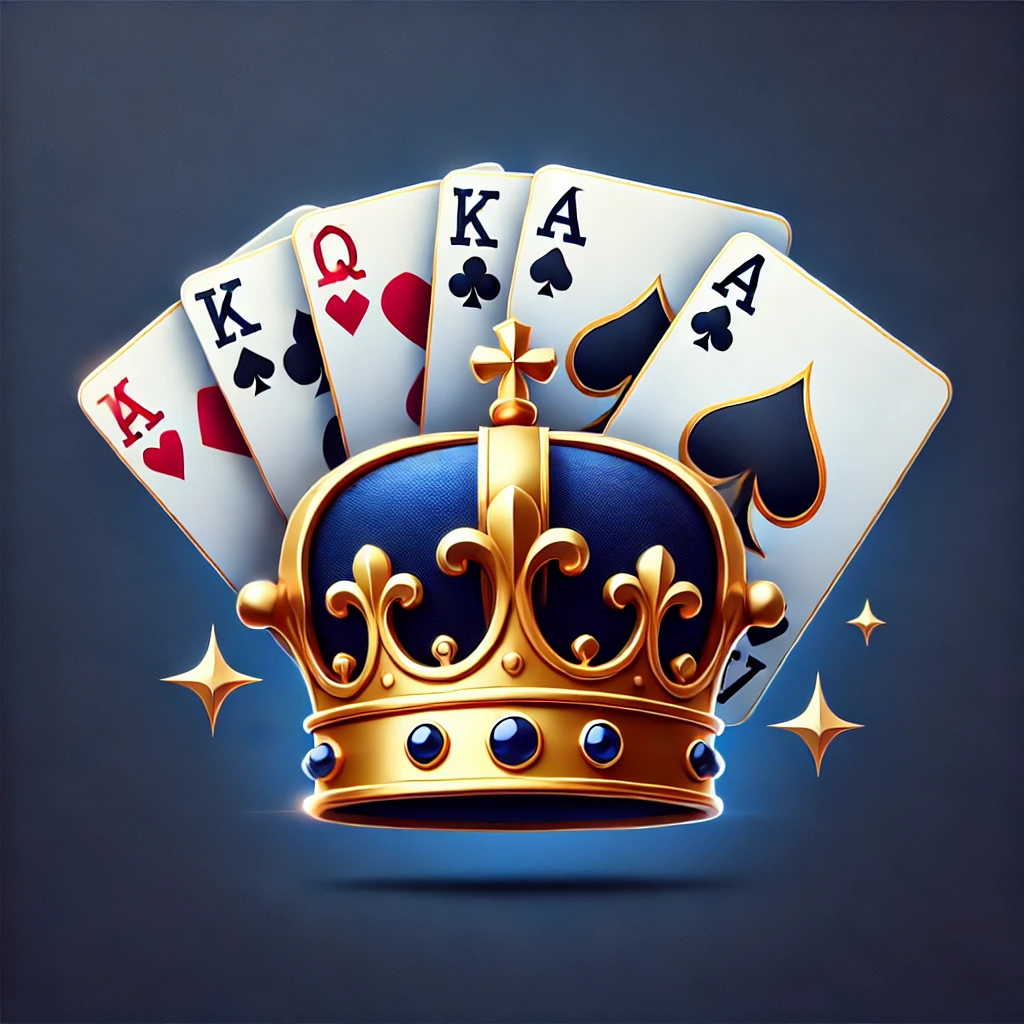Royally Rummy: The Ultimate Guide to Regal Card Games

A Comprehensive Look at Regal Card Games Royally Rummy is more than just a game; it’s a celebration of custom, strategy, and interpersonal relationships that has enthralled players for centuries. Both royals and commoners enjoy playing this card game, which is frequently connected to nobility & high society & blends elements of skill and chance. Royal Rummy’s rich history and cultural significance in many different societies are what make it so alluring. When players play this game, they are taking part in a legacy that has been passed down through the generations, reflecting the values and customs of the time, rather than just a leisure activity. Its complex rules & strategic depth, which can be both difficult and rewarding, define the game itself.
Players have to make a number of choices that call for flexibility, preparation, & foresight. It’s impossible to ignore Royal Rummy’s social component either; it provides a platform for player bonding, rivalry, and friendship. Royally Rummy, whether it is played in the comfortable nooks of a family living room or the lavish corridors of a palace, captures the spirit of human connection through friendly rivalry and shared experiences. Regal Card Games’ historical background.
Like the games themselves, the history of regal card games is fascinating. It is thought that card games first appeared in China during the Tang Dynasty (618–907 AD), & they eventually traveled to Europe via trade routes. Card games had become popular among the European nobility by the 14th century, & their variations had developed to accommodate their preferences. Social Hierarchy Reflected in Card Games.
A major cultural exchange occurred when playing cards were brought to Europe because the games started to mirror the values and social structures of the era. As a kind of entertainment, nobles frequently played card games to compete strategically & display their wealth and prestige. Card games changed from being a simple hobby to becoming status and power symbols as they developed. Card Games’ Development and the Royal Courts.
These games were adopted by European royal courts, and kings frequently held opulent competitions that drew elites from all over the world. Royal parties began to include games like whist, piquet, and later variations of rummy. As society changed, so did card games, with each new variation capturing the subtleties of the culture at the time. A Legacy That Lasts. This historical background enhances our comprehension of regal card games by demonstrating how they have long been woven into society.
Throughout royal culture, card games have been essential for social interaction and entertainment among the aristocracy. These games frequently served as more than just recreational pursuits in royal courts; they were essential to social networking and diplomatic ties. Nobles would play card games to build relationships, resolve conflicts, or just amuse visitors.
Because of the frequently high stakes—fortunes could change hands over a single card hand—these games required both strategy and risk management. Also, royals have long used card games as a platform to demonstrate their intelligence and slyness. Being able to outsmart opponents at the card table was regarded as evidence of one’s leadership and moral fiber. Because of this view, card games were seen as more than just amusement; they were seen as a test of social skills and strategic thinking. In this sense, the intrigue, rivalry, and never-ending quest for power that characterize royal life itself were microscopically represented by regal card games. Anyone wishing to become fully immersed in this fascinating world must comprehend the rules and strategies underlying regal card games.
Although each game has its own set of rules that govern play, many of them have things in common, like turn-taking mechanics, betting structures, and hand rankings. In Royal Rummy, for example, players strategically discard unwanted cards in order to outmaneuver their opponents while attempting to form sets or runs from their dealt cards. Since these guidelines serve as the cornerstone for strategies, mastering them is essential for success. Players need to cultivate a sharp sense of observation & flexibility in order to play strategically.
Paying attention to your opponents’ movements can reveal important information about their hands and goals. Players should also be aware of their own discards; a seemingly harmless card could unintentionally support an opponent’s strategy. Regal card games can also benefit greatly from effective bluffing, which involves deceiving opponents about one’s hand to open up winning opportunities.
Success in these games ultimately depends on a blend of deft play, psychological awareness, & comprehension of the nuances of the game. Numerous regal card games with distinct flavors and cultural significance have arisen all over the world. Games like bridge and whist have long been connected to social gatherings in Europe.
Because of its intricate partnerships and strategies, bridge in particular has become incredibly popular. It is frequently played in formal settings where manners are crucial. Whist, on the other hand, has its origins in the British nobility, where it was played in clubs & salons as a sign of refinement. Games like Mahjong have become more than just amusement in Asia; they are now cultural icons. Though not exactly a card game in the conventional sense, Mahjong is ingrained in Chinese & other social customs and uses tiles that work similarly to cards.
Rummy has come to represent family get-togethers & festivities in India, demonstrating how regal card games can be culturally appropriate while maintaining their essential components. While adding to the diverse fabric of global gaming culture, each of these games reflects the customs and values of its own society. establishing a regal tone. A fun activity that unites friends & family for a night of competition & laughter is throwing a royal card game night. Set up your space with sophisticated décor to create an ambiance worthy of royalty.
Think luxurious seating arrangements, soft lighting, and maybe even themed tableware that captures the grandeur of royal parties. An enjoyable evening where guests feel appreciated and involved is set in motion by a well-prepared setting. Selecting the Perfect Game. Choosing the correct game is essential for the actual event planning.
Take into account how accustomed your guests are to playing different card games; introducing them to Royally Rummy or another regal variation can be a great way to get their attention. Before beginning gameplay, it is important to make sure that everyone is aware of the rules. Enhancing the Experience. Refreshments, like gourmet snacks or fine wines, can also improve the experience. The key to a successful royal card game night is to create a welcoming environment where friendly competition and camaraderie thrive.
Beyond simple entertainment, regal card games have deep social and cultural significance. They act as a link between generations, enabling families to connect through common experiences and transmit customs from one time period to the next. Playing card games is about building relationships and making lifelong memories in many cultures, not just about winning or losing.
Families and friendships are strengthened by these get-togethers, which frequently turn into treasured customs. Also, broader societal values like patience, strategy, and resilience can be reflected in regal card games. Playing these games fosters critical thinking, emotional intelligence, and adaptability—skills that are applicable to many facets of life outside of the card game. In this sense, regal card games strengthen social ties within communities while also fostering personal growth.
They capture what human interaction is all about: rivalry balanced by friendship. To sum up, playing regal card games offers a chance to engage with history and culture more deeply in addition to providing entertainment. For good reason, these games have endured over time; they capture fundamental human emotions like strategy, camaraderie, & joy. Playing Royally Rummy or another traditional variation of the game entails taking part in a tradition that has influenced societies all over the world.
The value of in-person interactions is still crucial as we continue to navigate an increasingly digital world. While honoring our common humanity, regal card games offer a special way to build relationships that cut across generations. By assembling around a table for a card game, friendly competition, & laughter, we respect not only our own customs but also those of our forebears, guaranteeing that the spirit of regal card gaming will endure for the enjoyment of future generations.
